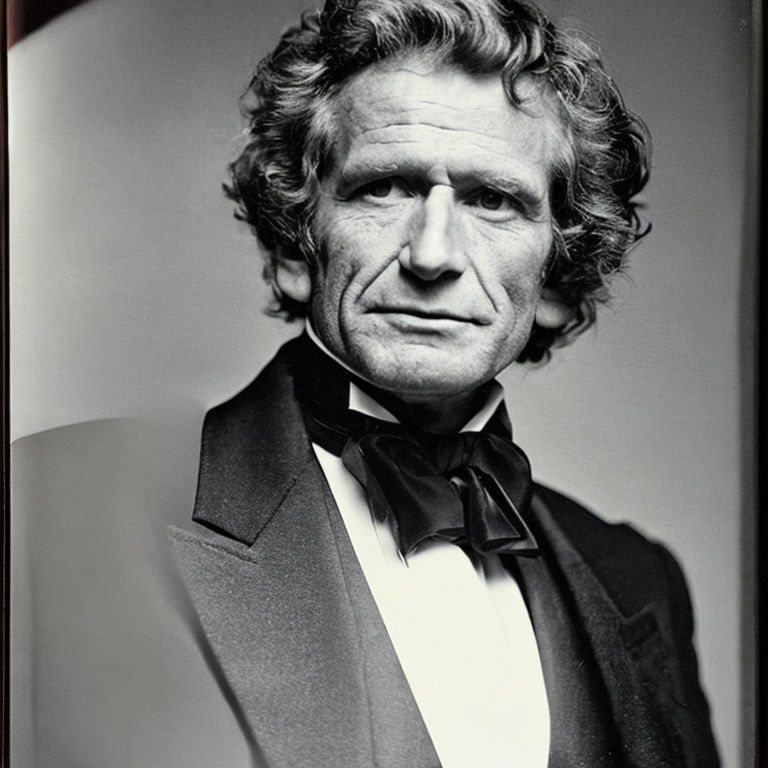Berlioz – A Composer’s Brilliance
Hector Berlioz (1803-1869) was a French composer and conductor who was one of the most influential and innovative of the Romantic composers. He was not only a great composer, but also a creative thinker who pushed the boundaries of music and revolutionized the form, paving the way for composers such as Wagner, Mahler, and Strauss.
Berlioz was born in Francea-madeby=”internallinker” href=”https://under1000words.com/Francea-madeby=”internallinker” href=”https://under1000words.com/Francea-madeby=”internallinker” href=”https://under1000words.com/france/”>france/”>france/”>france and exposed to music from an early age, but only began to take it seriously after seeing a performance of Gluck’s opera Iphigénie en Tauride in 1827. He was so taken with the music that he decided to become a composer and set off to Paris to study music.
Berlioz was a revolutionary composer, and his works were often met with confusion and criticism. His first major work, the Symphonie Fantastique, caused a stir due to its innovative musical techniques and daring orchestration. It was one of the first works of its kind to feature a programmatic structure, with each movement representing a scene from the protagonist’s dream.
Berlioz also wrote some of the most ambitious works of the Romantic period, such as the Grande Messe des Morts, a large-scale choral and orchestral work dedicated to the French Revolution. His opera Les Troyens was one of the most ambitious operas of the period, and his Requiem Mass a massive work for chorus and orchestra.
Berlioz was also an influential conductor and one of the first to use the baton. He was one of the first conductors to use the modern system of rehearsals, which allowed him to be more exact in his interpretation of the works.
Berlioz also wrote extensively about music and his own works, in both essays and memoirs. His book Treatise on Modern Instrumentation and Orchestration was one of the first works of its kind and is still used today.
Berlioz was a true innovator, and his influence on music can still be heard today. His works pushed the boundaries of music and paved the way for future composers to explore new ideas and create even more ambitious works. He was a musical genius, and his works will continue to inspire future generations of musicians.
Berlioz: The Controversy
s Symphonie Fantastique
Berlioz’s Symphonie Fantastique is one of the most iconic and influential symphonies of the 19th century, and has been subject to a number of controversies over the years.
First, there is the controversial nature of the composition itself. The symphony is based on a fantastical story, in which the protagonist is driven to madness by an unrequited love. The work is full of bizarre and often disturbing musical effects, such as a recurring orchestral march featuring drums and other percussion instruments that suggest a guillotine. The symphony also features a dream sequence in which the protagonist imagines himself in a witches’ sabbath. This avant-garde approach to composition was considered shocking and even blasphemous by some, and resulted in the symphony being banned in some cities.
Second, there is the controversy surrounding Berlioz’s performance of the symphony. Berlioz was known for his wild, unhinged conducting style, which often included screaming and jumping around the stage. This unorthodox approach to conducting was considered outrageous and disrespectful by many, and led to a number of incidents in which Berlioz was booed off the stage.
Finally, there is the controversy surrounding the symphony’s influence on later composers. Many of the techniques employed by Berlioz in the symphony, such as the use of extreme dynamics, orchestral colour, and the depiction of non-musical sounds, were highly influential on later composers, such as Richard Strauss and Gustav Mahler. However, some critics argue that these later composers simply imitated Berlioz, and that their works lack originality.
Berlioz: Unveiling Secrets
Hector Berlioz composed his Symphonie Fantastique at the age of 28, and it was premiered in Paris in 1830.
• Berlioz was known for being a pioneer in the Romantic movement and wrote a vast array of works including operas, symphonies, concert overtures, and choral works.
• He was the son of a physician and had an aptitude for music from a young age. He was an excellent violinist, but his parents did not approve of him pursuing music as a profession.
• Berlioz was a great admirer of Shakespeare and wrote an opera based on his play “Romeo and Juliet”.
• He also wrote a dramatic symphony based on Virgil’s Aeneid, and a cantata based on Byron’s poem The Corsair.
• Berlioz was an innovator in orchestration and was known for his use of the orchestra to evoke emotions.
• He was also a great advocate of Wagner’s music and wrote a book on the subject entitled “The Wagnerian Drama.”
• Berlioz was a great admirer of Beethoven and wrote a series of articles on his works.
• Berlioz was a great traveler and visited many countries in Europe, including Germany, Italy, England, and Russia.
• He was also an excellent conductor and performed with many orchestras across Europe.
• Berlioz was an active member of the Parisian musical scene and founded the Société des Concerts du Conservatoire.
• He was also a great teacher and his pupils included such famous composers as Franck, Gounod, and Saint-Saëns.
Tags: 19thcentury, BenvenutoCellini, Berlioz, classicalmusic, classicalmusiccomposer, Conductor, Frenchcomposer, Frenchmusic, GrandeMessedesMorts, HaroldenItalie, HectorBerlioz, L'EnfanceduChrist, LesNuitsd'ete, LesTroyens, opera, orchestra, Requiem, Romanticcomposer, Romanticism, SymphonieFantastique, TeDeum
Tweet
Hmm, I don’t get the hype around Berlioz. Music history is music history, nothing changes. Just a musician doing their thing, nothing groundbreaking.